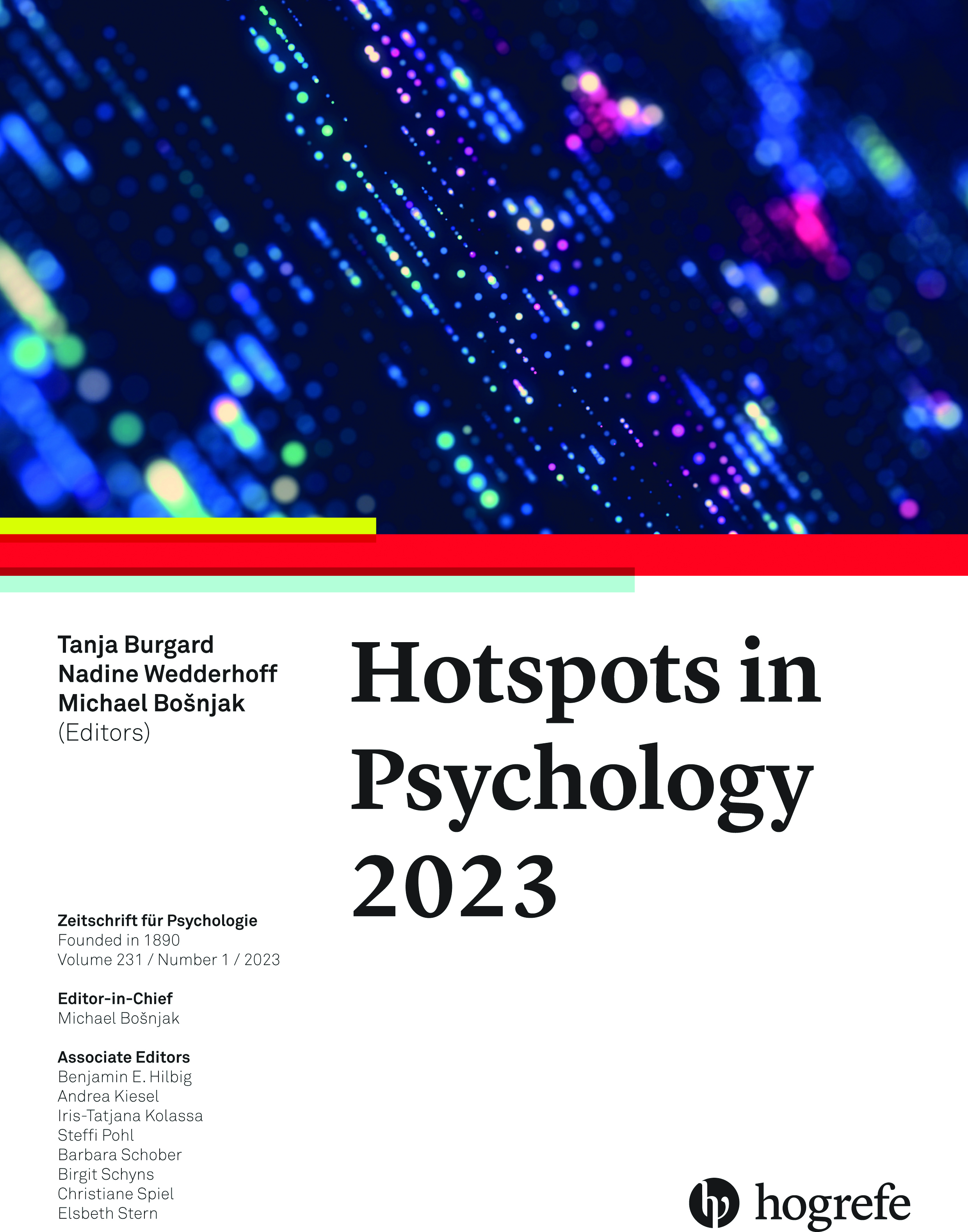“Text Mining in Psychology”
A Topical Issue of the Zeitschrift für Psychologie
Focus of the Topical Issue, Aims, and Scope
Text is omnipresent in our daily lives. Reading the latest news in the morning, writing emails at work, or chatting with friends via messengers – digitalization revolutionized the production, storage, and dissemination of textual communication. With the advent of social media, vast amounts of digital footprints such as comments, status posts, or Tweets became publicly available. This represents both an opportunity and challenge for psychological research: On the one hand, collecting natural language unobtrusively is very appealing, as it offers the chance to unveil an author's psychological characteristics. For instance, researchers were able to infer personality traits, mental health, or job performance from textual analysis. On the other hand, the growing volume, velocity, and often very unstructured nature of such text corpora demand analysis techniques beyond traditional human coding.
Computational methods for gaining insights from large textual data sets are referred to as text mining. Popular examples include the use of linguistic dictionaries for extracting cognitive or affective processes, sentiment analysis for detecting affective states, or topic modeling for extracting the main themes. By transforming words to numerical vectors using word embeddings (e.g., word2vec, GloVe, BERT), semantic similarity of words can be modeled. However, text mining making use of machine learning algorithms and deep learning has its own limitations and pitfalls, especially when it comes to accountability, validity, and reliability of insufficiently supervised algorithms.
In this call for papers for the Zeitschrift für Psychologie, we invite contributions from all fields of psychology addressing text mining in psychological research. Of particular interest are articles reviewing the state of the art in computational text analysis for answering psychological research questions, hands-on tutorials, or best-practice suggestions for specific methods (e.g., textual classification, topic identification, inferring psychological constructs from social media), as well as theoretical and methodological studies (e.g., comparing machine-learning-based approaches to traditional qualitative methods, validity of unsupervised approaches). In addition, original empirical research computationally analyzing text corpora of any kind (e.g., social media content, psychotherapy transcripts, educational texts, or open-ended survey responses) is welcome.
How to Submit
There is a two-stage submissions process. Initially, interested authors are requested to submit extended abstracts of their proposed papers. Authors of the selected abstracts will then be invited to submit full papers. All papers will undergo blind peer review.
Stage 1: Structured Abstract Submission
Authors interested in this special issue must submit a structured abstract of the planned manuscript before submitting a full paper. The goal is to provide authors with prompt feedback regarding the suitability and relevance of the planned manuscript to the special issue.
The deadline for submitting structured abstracts is July 15, 2023.
Feedback on whether or not the editors encourage authors to submit a full paper will be given by August 15, 2023.
Submission Guidelines for Structured Abstracts
Structured abstracts should be within four pages and may encompass information on each of the following headings: (a) Background, (b) Objectives, (c) Research question(s) and/or hypothesis/es, (d) Method/Approach, (e) Results/Findings, and (f) Conclusions and implications (expected). Structured abstracts should be submitted by email to André Bittermann abi@leibniz-psychology.
Stage 2: Full Paper Submission
The full papers must be submitted through the online submission system of the journal, Editorial Manager at https://www.editorialmanager.com/zfp/default.aspx. For those who have been encouraged to submit a full paper,
the deadline for submission of manuscripts is November 15, 2023.
Submission Guidelines for Full Papers
- –Only English language submissions can be considered.
- –Contributions must be original (not published previously or currently under review for publication elsewhere).
- –Review and original articles should not exceed 45,000 characters and spaces in length, including references, figures, and tables (allowances for figures and tables should be deducted on the basis of size: approximately 1,250 characters for a quarter-page figure/table).
- –All research syntheses should adhere to the meta-analytic reporting standards (MARS) proposed by the APA (http://www.apa.org/pubs/authors/jars.pdf). Additionally, authors should include a statement in accordance with the Preferred Reporting Items for Systematic Reviews and Meta-Analyses (PRISMA) statement (http://www.prisma-statement.org) as a supplemental file for review.
- –Other submission formats (short reports, research summaries, opinion pieces, etc.) are also considered – please contact the editors for details.
- –Reference citations in the text and in the reference list should be in accordance with the principles set out in the Publication Manual of the American Psychological Association (7th ed.).
- –Supplementary material must be made available through PsychArchives: https://www.psycharchives.org/
- –See also any recent issue of the journal.
Timeline
- •July 15, 2023: Abstract submissions due
- •August 15, 2023: Feedback to authors
- •November 15, 2023: Full paper submissions due
- •January 15, 2024: Feedback to authors of full paper submissions due
- •February 15, 2024: Revised manuscripts due
- •March 15, 2024: Editorial decision about acceptance/refusal of revised papers due
- •Issue 3 (2024): Publication of topical issue
About the Journal
The Zeitschrift für Psychologie, founded in 1890, is the oldest psychology journal in Europe and the second oldest in the world. One of the founding editors was Hermann Ebbinghaus. Since 2007, it is published in English and devoted to publishing topical issues that provide state-of-the-art reviews of current research in psychology. For more detailed information about the journal, please visit the official website at http://www.hgf.io/zfp.



